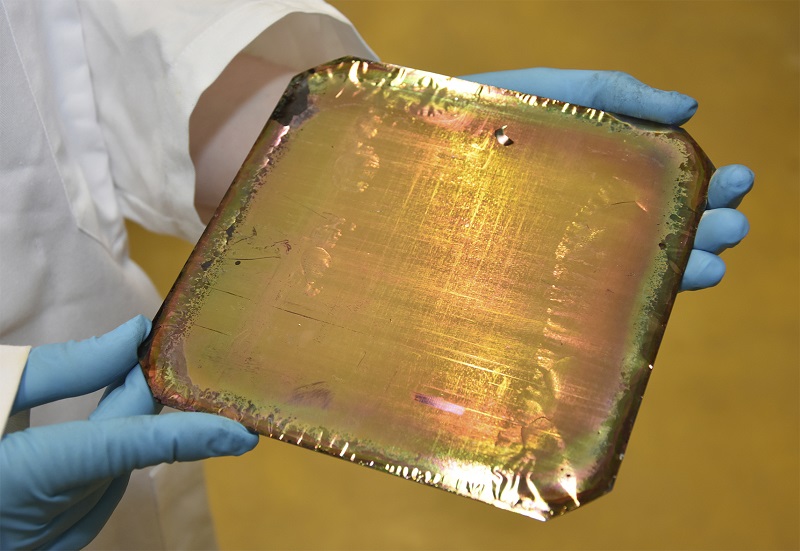RENA Technologies, a German supplier of wet chemical processing equipment for the solar industry, has teamed with the Christian Albrecht University in Kiel (CAU) to develop a new manufacturing process for silicon anodes in lithium-ion batteries that leans on the similar inline techniques employed by RENA in the solar industry.
Boasting vast experience in developing machinery for the processing of solar cells, RENA turned its attention and expertise to the growing storage industry, specifically in the development of silicon anodes that can be used to boost the efficacy and performance of lithium-ion batteries, which are the most commonly used chemistries in stationary storage applications.
Working alongside CAU experts, RENA and the team discovered that silicon is able to handle a greater number of lithium ions than graphite, which is the go-to material used for the production of anodes.
Anodes made from silicon, however, boast energy density ten times greater than graphite. The problem has long been that silicon becomes unstable when loaded with lithium ions, meaning that silicon anodes’ cycle life is very short.
To overcome this shortfall, CAU researchers employed an electrochemical etching step to structure the silicon in such a way as to incorporate voids in the anode that allow silicon to expand without fracturing.
This process, though effective, was not suitable for mass production because it typically requires the sealing of processed substrates in order to avoid short currents between positive and negative electrodes. Hence, anything that requires a high throughput in production – such as lithium-ion batteries – would be unsuitable for the etching process.
Popular content
Enter RENA. The German firm can adapt its solar cell inline process by simplifying its machine to handle electrochemical etching of silicon at mass volume, and is currently working with CAU to better understand the delicacies at hand.
“RENA’s experience in equipment and process development is an important factor to transfer this technology into industry,”, CAU researcher Sandra Hansen said.
Franck Delahaye, business development manager at RENA added: “CAU’s profound knowledge in material science, silicon anodes and battery manufacturing will be key to integrate the silicon material processed on our system into high performance lithium ion batteries.”
Beyond battery manufacturing, the inline system is also suitable for further high throughput applications such as solar cell manufacturing. “There the porous silicon can serve as detachment layer to separate epitaxial structures such as solar cells or wafers that are deposited onto the silicon wafer following the electrochemical etching step”, Delahaye concluded.
This content is protected by copyright and may not be reused. If you want to cooperate with us and would like to reuse some of our content, please contact: editors@pv-magazine.com.


By submitting this form you agree to pv magazine using your data for the purposes of publishing your comment.
Your personal data will only be disclosed or otherwise transmitted to third parties for the purposes of spam filtering or if this is necessary for technical maintenance of the website. Any other transfer to third parties will not take place unless this is justified on the basis of applicable data protection regulations or if pv magazine is legally obliged to do so.
You may revoke this consent at any time with effect for the future, in which case your personal data will be deleted immediately. Otherwise, your data will be deleted if pv magazine has processed your request or the purpose of data storage is fulfilled.
Further information on data privacy can be found in our Data Protection Policy.